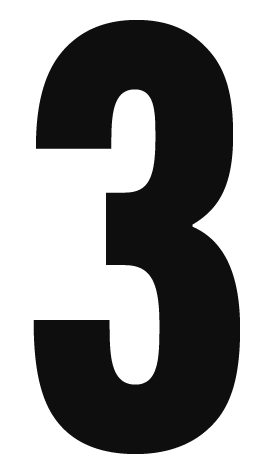Heroin:
Addiction & Treatment
Heroin is a potent synthetic opioid derived from morphine. Its rapid onset of euphoria makes it highly addictive and dangerous, with risks including overdose and long-term organ damage. Learn more about heroin’s nature, the effects and risks of its use, and available treatment options for those struggling with heroin addiction.
WHAT IS HEROIN?
Heroin is a synthetic opioid drug derived from morphine, extracted from the seed pod of the Asian poppy plant. It includes diacetylmorphine, which impacts the brain’s reward system. Heroin often appears as a white or brown powder or a black sticky substance known as ‘black tar heroin.’ Heroin was first marketed as a cough suppressant and a non-addictive morphine substitute in 1897. However, its addictive properties soon became apparent, leading to its classification as a controlled substance by the early 20th century.
Common slang terms include “smack,” “H,” “dope,” and “horse.” People may refer to injecting heroin as “shooting up” and smoking it as “chasing the dragon.” Understanding the street names for heroin can help identify its presence and potential dangers.
-
The Grip of Heroin Addiction
Heroin addiction is marked by compulsive drug-seeking behavior and continued use despite severe consequences. It affects both the body and mind, leading to serious physical, psychological, and social challenges.
Our Addiction Services -
Heroin & The Brain
Heroin rapidly enters the brain, binding to opioid receptors and triggering an intense rush of euphoria and relaxation. This pleasurable effect reinforces continued use, making heroin highly addictive. Over time, the brain adapts, requiring higher doses to achieve the same effect, leading to increased tolerance and dependence.
Get to know Heroin - NIH -
Long-Term Heroin Use
Long-term heroin use can cause severe withdrawal symptoms, including nausea, muscle pain, insomnia, anxiety, and intense cravings, making quitting extremely difficult without professional help. Additionally, heroin addiction increases the risk of overdose, infectious diseases (such as HIV and hepatitis), and organ damage.
Withdrawal symptoms -
Recovery From Heroin
Understanding the cycle of addiction is crucial in recognizing when someone needs help. Comprehensive treatment, including medical detox and therapy, is essential for lasting recovery.
Alumni Testimonials
SIGNS AND SYMPTOMS
OF HEROIN ADDICTION
Recognizing heroin addiction early can lead to timely intervention and treatment.
Here are some common signs and symptoms of heroin addiction:
-

Physical Symptoms
Nausea and vomiting.
Constricted pupils.
Respiratory depression. -

Psychological Symptoms
Euphoria followed by drowsiness.
Depression & anxiety
Cognitive impairment. -

Behavioral Symptoms
Obsessive drug-seeking behavior.
Isolation from friends and family.
Financial and legal problems.
HEROIN WITHDRAWL
Heroin withdrawal can be physically and emotionally intense, with symptoms appearing as soon as a few hours after the last dose. Withdrawal occurs because the body has become dependent on heroin, and without it, the central nervous system struggles to regain balance.
Common symptoms include intense cravings, sweating, anxiety, restlessness, muscle aches, nausea, vomiting, diarrhea, chills, and insomnia. Many individuals also experience severe mood swings, depression, and irritability, making withdrawal even more challenging. Although heroin withdrawal is rarely life-threatening, complications like dehydration, heart irregularities, and severe depression can create serious physical and psychological challenges.
Due to the discomfort and high relapse risk, attempting heroin detox at home is difficult and often unsuccessful. Medication-assisted treatment (MAT) and therapy can help ease withdrawal symptoms, reduce cravings, and improve the chances of long-term sobriety.
Recovery Unplugged offers medically supervised detox that supports symptom management and a structured plan for continued recovery.
HEROIN TREATMENT
CENTERS AND OPTIONS
At Recovery Unplugged, we integrate creative expression into our therapeutic methods, helping individuals connect with their emotions and experiences meaningfully. Choosing a heroin treatment program requires a comprehensive understanding of what each program has to offer. An effective heroin treatment program will offer multiple levels of care designed to address both the physical dependence and psychological aspects of heroin use.
-
Medical Detox
Medical detox is the first step in treating benzodiazepine addiction. It involves a gradual tapering of the medication under medical supervision to safely manage withdrawal symptoms. Healthcare providers may also prescribe alternative medications to ease withdrawal and address co-occurring mental health issues.
Our Detox Services -
Inpatient Treatment
A structured, 24-hour care environment designed for individuals with severe addiction or co-occurring mental health conditions.
Our Program -
Outpatient Treatment
Allows individuals to continue living at home while attending therapy and support sessions, best suited for those with a stable home environment.
Our Program -
Medication-Assisted
(MAT)
Uses medications to manage withdrawal symptoms and support recovery.
Learn more -
Cognitive-Behavioral Therapy
(CBT)
Helps individuals understand and change the thought patterns contributing to substance use.
Learn more -
Dialectical Behavior Therapy
(DBT)
Builds emotional regulation, distress tolerance, and coping skills for lasting recovery.
Learn more
FAQS ABOUT HEROIN ADDICTION
Can you detox from heroin at home?
Individuals should not attempt a heroin detox at home, as withdrawal can lead to serious complications. Medical detox is the safest and most comfortable option to manage heroin withdrawal and ensures the best foundation for recovery.
What drug is used to treat heroin addiction?
Medications like methadone, buprenorphine, and naltrexone are commonly used in heroin treatment programs.
Can Narcan (naloxone) reverse a heroin overdose?
Yes, Narcan (naloxone) can rapidly reverse the effects of a heroin overdose by blocking opioid receptors in the brain. When administered in time, it can restore normal breathing and prevent fatal respiratory depression, potentially saving lives.
TAKE THE FIRST STEP
TOWARDS RECOVERY
Taking the first step toward healing can feel overwhelming, but support is available. If you or someone you love is struggling with heroin addiction, Recovery Unplugged is here to help. Our expert team provides personalized treatment programs designed for lasting change. Don’t wait—reach out today and take control of your future.
Call Us Today Contact Us